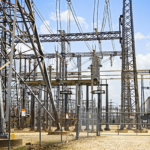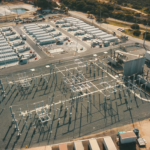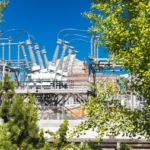As technology and infrastructure evolve, the demand for skilled electrical engineers continues to grow. In Australia, where infrastructure investment is a priority for both public and private sectors, electrical engineers play a crucial role in designing and maintaining the electrical systems that power cities, industries, and essential services. With the rapid expansion of renewable energy projects, the transition to smart grid technology, and a strong push for sustainable, resilient infrastructure, the future of electrical engineering jobs in Australia is vibrant and full of opportunities. Here, we explore the top skills that will define the future of electrical engineering careers, particularly for professionals in design consultancies.
1. Proficiency in Renewable Energy Design and Integration
As Australia continues to transition toward renewable energy, electrical engineers need strong skills in designing systems that accommodate solar, wind, and other renewable power sources. A recent report by the Clean Energy Council emphasised the increasing need for engineers who understand not only the generation but also the integration of renewables into the national grid. Engineers with expertise in photovoltaic (PV) systems, energy storage technologies, and hybrid energy solutions are particularly in demand. In design consultancies, this skill set is essential for creating projects that meet both sustainability goals and client needs, enabling smoother integration of renewable sources into existing electrical infrastructure.
2. Smart Grid and Digital Transformation Skills
The digital transformation of the electrical grid is well underway in Australia, with utilities investing heavily in smart grid technology. Smart grids rely on advanced sensors, automation, and data analytics to improve efficiency, reduce outages, and enable two-way communication between utilities and consumers. Electrical engineers with expertise in smart grid technology, data communication, and IoT (Internet of Things) applications are increasingly valuable to consultancies. Skills in designing intelligent, responsive systems that can adapt to fluctuating energy demands or integrate with renewable sources are crucial in today’s energy landscape.
Beyond the technology, however, engineers must also understand the cybersecurity implications associated with smart grids. As grids become smarter, they also become more vulnerable to cyber threats. Engineers with knowledge in cybersecurity for critical infrastructure are particularly sought-after, making this a valuable area for skill development.
3. Expertise in High-Voltage Substation Design
High-voltage substations are a critical element of Australia’s electrical infrastructure, especially with the rise in renewable energy projects located far from urban centres. As Australia aims to upgrade its aging infrastructure, electrical engineers specialising in high-voltage substation design will find themselves in high demand. These engineers play an essential role in ensuring the reliability and safety of electrical transmission networks.
Skills in high-voltage engineering, protection systems, and SCADA (Supervisory Control and Data Acquisition) systems are indispensable for this work. Substation engineers in consultancies often face complex challenges, such as ensuring compatibility between new renewable energy sources and traditional infrastructure. Those proficient in substation automation, relay coordination, and high-voltage equipment specifications can expect strong career prospects.
4. Data Analytics and AI in Engineering Applications
With data playing a central role in decision-making and system optimisation, skills in data analytics and AI are becoming increasingly valuable in electrical engineering. Design engineers who can apply AI for predictive maintenance, load forecasting, and fault detection are at a competitive advantage. For example, machine learning models can be trained to detect patterns and anomalies in data, predicting failures before they occur, which reduces downtime and costs for clients.
In consultancy, engineers with data skills can bring added value to clients by offering data-driven insights and recommendations. This analytical approach is especially valuable in complex projects where cost efficiency, system reliability, and optimisation are key objectives. Engineers with experience in Python, R, or MATLAB, as well as an understanding of data science principles, are well-positioned for future success.
5. Project Management and Interdisciplinary Collaboration
Increasingly, engineers are expected to work in multidisciplinary teams, collaborating with professionals from civil engineering, environmental science, and data science, among other fields. For this reason, project management skills are essential, particularly in consultancies where engineers may handle multiple projects simultaneously.
Engineers with knowledge of project management methodologies, such as Agile and Lean, as well as proficiency in project management tools (e.g., MS Project or Primavera), are well-suited to manage timelines, budgets, and resources effectively. Additionally, an understanding of contractual and regulatory considerations is crucial, particularly in Australian contexts where compliance with strict standards (e.g., AS/NZS 3000 Wiring Rules) is mandatory. These skills make engineers more versatile and valuable in the workplace, enabling them to lead and support projects with greater efficiency.
6. Proficiency in Electrical Design Software and CAD Tools
Today’s electrical design work relies heavily on advanced software tools, from CAD programs to specialised electrical design software. Engineers proficient in AutoCAD, Revit, ETAP, and similar platforms are at a distinct advantage in the job market. In consultancies, where accuracy and detail are paramount, engineers who can create precise designs that comply with Australian standards stand out.
For those specialising in power systems, familiarity with software like PowerFactory, SKM PTW, or PSSE is invaluable. These tools allow engineers to model and simulate complex power systems, analyse load flow, and ensure the safety and reliability of electrical systems. As the industry moves towards Building Information Modelling (BIM) practices, proficiency in BIM tools is also becoming increasingly relevant.
7. Knowledge in Sustainability and Energy Efficiency
With the pressing need to reduce emissions and promote energy efficiency, Australian engineers who understand sustainable design practices are highly sought after. This involves knowledge of energy-efficient design principles, such as load management, power factor correction, and energy auditing. Engineers in design consultancies need to recommend efficient solutions that align with both environmental goals and regulatory requirements.
Engineers specialising in sustainable design often work on projects that involve energy-efficient lighting, HVAC systems, and the integration of renewable energy sources. By implementing sustainable practices in design, engineers can significantly reduce operational costs and environmental impact for clients, which is a key consideration in a consultancy setting.
8. Soft Skills: Communication, Adaptability, and Problem-Solving
While technical skills are vital, soft skills such as communication, adaptability, and problem-solving are equally important. Engineers often need to explain complex technical concepts to non-technical clients, making clear communication skills essential. Adaptability is also crucial in a field where technologies and standards evolve rapidly. Engineers who embrace continuous learning and adaptability can pivot as needed to stay relevant.
Problem-solving is central to engineering, but in consultancies, it often takes on additional dimensions. Engineers must balance technical feasibility with budget constraints, safety regulations, and client expectations. Those who can think critically and find innovative solutions to these multifaceted challenges are especially valuable.
Embracing the Future of Electrical Engineering
The future of electrical engineering in Australia is promising, especially for those equipped with in-demand skills that match industry needs. Electrical engineers who stay abreast of technological advances, from smart grids to AI, and who build expertise in critical areas like renewable integration and cybersecurity, will be well-positioned for long-term career success.
In a field that is both technically challenging and continually evolving, electrical engineers must remain committed to lifelong learning. By developing a mix of technical proficiency and soft skills, today’s engineers can ensure they are not only job-ready for the present but also resilient to the demands of the future.
Reading Time: 4 minutes






